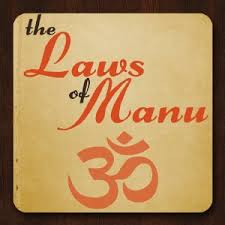I was in a session with a client last week and the topic of spiritual work came up. My client suggested he was not doing enough to further himself spiritually. He has a very big and responsible job and a family at home who he loves spending time with. Naturally, time is the biggest issue for him because there is so little discretionary time available with all of his responsibilities. I suggested that there is a way to shape one’s consciousness but that of course takes intent and the subsequent practice. As we got deeper into this I remembered studying the Laws of Manu, a supplement to the Indian Vedas, considered the most sacred of the Hindu scriptures. Though there is much about the social norms of religious life discussed in this volume (surmised to have been written about 500 BC), what I recall most prominently is a description of a way to structure one’s life in four 25-year increments
Briefly, the first 25-years are devoted to being a student. The second 25-year increment is devoted to one’s family and one’s career. The archetype that represents this segment is the householder. Following this is what we might call early retirement at age 50. For these next 25-years one becomes a “forest dweller,” leaving one’s family, one’s job and letting go of everything one has accumulated on both a physical and emotional level. It is during these 25-years that one devotes to working on oneself spiritually and overcoming the fears of death. It logically follows that the last 25-years is about returning to one’s previous community to teach and give back all that one has learned, representing true eldership.
These days retirement keeps being pushed back more and more due to economic constraints. Social security benefits are being discussed to defer or extend the time when one first becomes eligible. These financial matters make it more complicated to let go of one’s attachments when the householder segment continues to be stretched out further and further. Nonetheless, using this somewhat idealized model for the human life cycle posits that one needn’t overly concern oneself with spiritual matters while being a householder—one has plenty of other concerns and responsibilities during this time. One may argue that it is best to attempt to live a spiritual life and maintain spiritual values during much of our adult life, not just after retirement. Yet the reality remains that being focused on career and family is an enormous responsibility that often requires most if not all of our energy. Be the best householder/parent/worker you can be. So give yourself a break. If you have spiritual stirrings, let them take you to where you are willing to go, but take care of yourself and try not to get split between householder and retirement goals. They are distinctly different so us do our best in whatever stage of life we find ourselves. If you can meditate and do yoga everyday and it works into your schedule, wonderful. If you find yourself just too busy for daily meditation right now, consider the Laws of Manu as a template or a guide. Stage three will be here before you know it.
Posted on June 25, 2013
Howard Brockman, LCSW
Howard Brockman
Latest posts by Howard Brockman (see all)
- How To Deal With Difficult And Aggressive People - September 8, 2014
- Mental Health Self-Test - May 8, 2014
- Psychotherapy or Psychiatry? - January 30, 2014
- Prevent Alzheimer’s Disease - August 22, 2013
- Depression, Mindfulness and the Inner Critic - July 27, 2013
